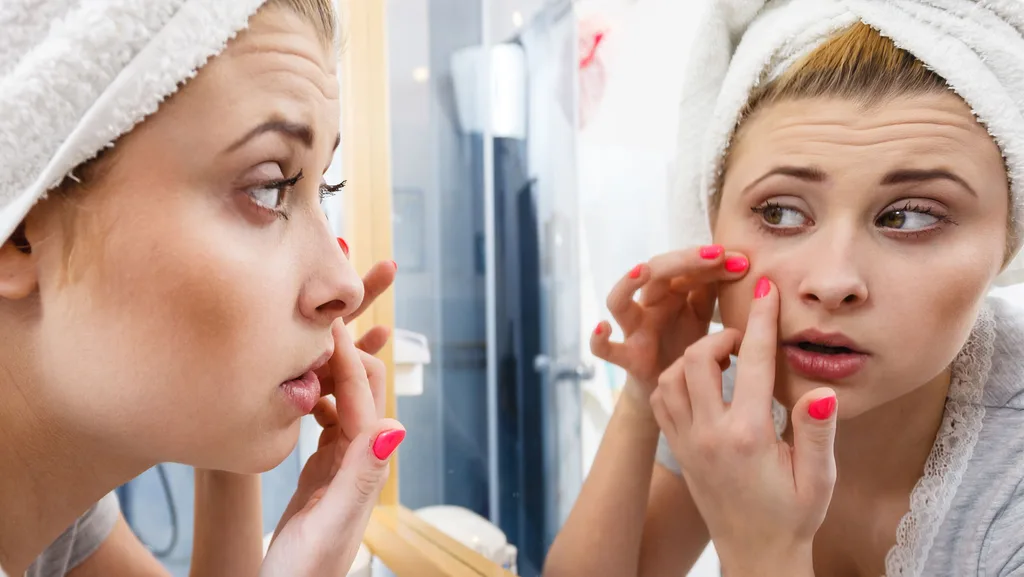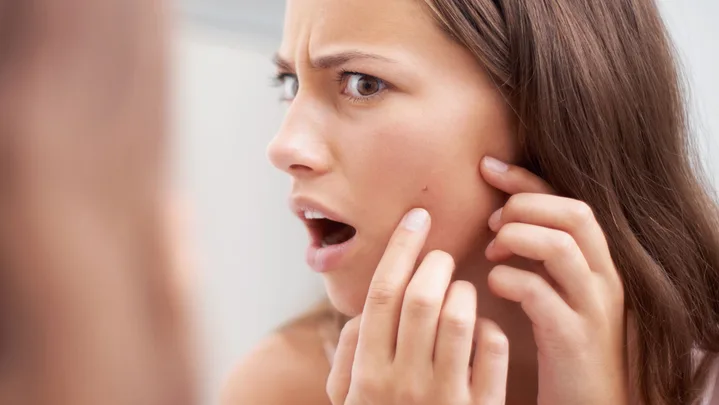As much as we try to deny their existence by masking our blemishes with concealer, adult pimples still happen.
Not just a problem exclusive to teenagers, acne can follow adults into their twenties, thirties, forties (and in severe cases, fifties) and according to Beauty Directory, dermatologists say acne is the leading skin complaint in New Zealand.
What causes adult acne?
The Mayo Clinic lets us know that pimples occur when excess oil and dead skin cells create a plug in the skin, which often becomes an infected, swelling red bump.
Oil and dead skin cells travel to your face via hair follicles under the skin which can become clogged if there is an overabundance of the oily substance sebum.
Hormones are a major factor affecting oil and skin cell production, which explains why acne is most commonly associated with adolescence. Specific hormones known as androgens – present in both men and women – can overstimulate the sebaceous oil glands.
Bad news for ladies, women in particular are more likely to suffer from adult acne and symptoms are often exacerbated when your period is due. Adult acne can occur in women who avoided pimples as teens and is most commonly seen on the lower face and neck.

Is there anything I can do?
Acne has a psychosocial effect on sufferers so it’s important to combat signs and symptoms in any way possible:
Have a good skincare routine
Be sure to wash your skin morning and night with a cleanser appropriate for your skin type (oily, sensitive, combination etc) as this helps remove dead skin cells which clog your pores. If you’d like, use this next step to apply a toner or a face serum tailored to your biggest skin concern, then follow with a hydrating moisturiser to rejuvenate your skin.
Note: just because you have oily skin it doesn’t mean you don’t need to moisturise. When you cleanse your face you are stripping it of its natural oils; it will overcompensate by producing more oil if you don’t rehydrate after cleansing.
Change your make-up
Speaking to Beauty Directory NZ, Dermalogica’s head of education, Caroline Parker, says that mineral make-up is a good option if you want to avoid pimples.
“Sweat-proof, smudge-proof and long-wearing make-up is best avoided as it can contain plastics, which block your skin and cause breakouts,” says Parker. “It’s best to use a mineral make-up that will not block or congest your skin.”
Watch your dairy intake
It’s a common misconception that what you eat is directly correlated to acne flare-ups, but M.D. and dermatologist from the Wake Forest Baptist Medical Center, Sarah Taylor, says the only thing you really need to worry about is dairy.
“Non-organic dairy products can make acne worse, because the cows are treated with growth hormones,” Taylor said. “So we’ll tell patients that when they’re having yoghurt, cheese, milk or ice cream to make sure it’s organic if they want to help their acne out.”
See a dermatologist for a consultation
Sometimes no matter what we do symptoms of acne won’t budge, in these cases seeing a dermatologist can be well worth the cost. Professionals can prescribe anti-inflammatories that may lessen the severity of acne, including reducing redness and swelling.

